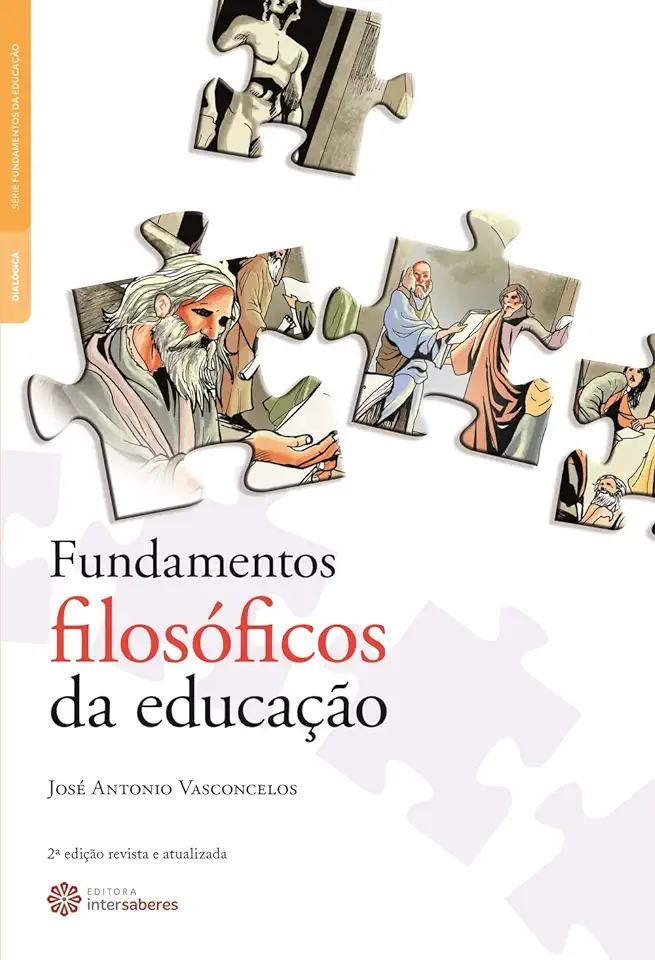
Philosophical Foundations of Education - José Antônio Vasconcelos
Philosophical Foundations of Education: A Comprehensive Exploration of Educational Theory
José Antônio Vasconcelos' Philosophical Foundations of Education is a comprehensive and thought-provoking exploration of the philosophical underpinnings of education. This seminal work delves into the fundamental questions that shape educational theory and practice, providing readers with a deeper understanding of the purpose and nature of education.
Understanding the Philosophical Foundations of Education
Vasconcelos begins by establishing the importance of understanding the philosophical foundations of education. He argues that education is not merely a technical process of imparting knowledge and skills, but rather a complex social and cultural phenomenon that is deeply rooted in philosophical assumptions and values. By examining these philosophical foundations, educators can gain a more profound understanding of the aims and objectives of education, as well as the methods and practices that are most effective in achieving them.
Major Philosophical Perspectives on Education
Vasconcelos then explores the major philosophical perspectives on education, including idealism, realism, pragmatism, and existentialism. Each perspective is examined in depth, with a focus on its key tenets and implications for educational theory and practice. Vasconcelos provides a balanced and objective analysis of each perspective, allowing readers to develop a comprehensive understanding of the philosophical landscape of education.
Idealism and Education
Idealism, according to Vasconcelos, views education as a process of developing the mind and intellect. Idealists believe that the ultimate goal of education is to cultivate the individual's capacity for rational thought and moral reasoning. Vasconcelos discusses the contributions of Plato, Kant, and other idealist philosophers to educational theory, and explores the implications of idealism for curriculum design, teaching methods, and assessment.
Realism and Education
Realism, on the other hand, views education as a process of acquiring knowledge about the external world. Realists believe that the primary goal of education is to transmit accurate information and develop students' intellectual skills. Vasconcelos examines the contributions of Aristotle, Locke, and other realist philosophers to educational theory, and explores the implications of realism for curriculum design, teaching methods, and assessment.
Pragmatism and Education
Pragmatism, according to Vasconcelos, views education as a process of solving problems and adapting to changing circumstances. Pragmatists believe that the ultimate goal of education is to prepare individuals for practical life and to promote social progress. Vasconcelos discusses the contributions of Dewey, James, and other pragmatist philosophers to educational theory, and explores the implications of pragmatism for curriculum design, teaching methods, and assessment.
Existentialism and Education
Existentialism, according to Vasconcelos, views education as a process of self-discovery and personal growth. Existentialists believe that the ultimate goal of education is to help individuals develop their unique potential and to live authentic lives. Vasconcelos discusses the contributions of Kierkegaard, Sartre, and other existentialist philosophers to educational theory, and explores the implications of existentialism for curriculum design, teaching methods, and assessment.
Conclusion: The Significance of Philosophical Foundations in Education
In conclusion, Vasconcelos emphasizes the significance of understanding the philosophical foundations of education. He argues that by examining the philosophical assumptions and values that underpin educational theory and practice, educators can gain a deeper understanding of the purpose and nature of education, and can make more informed decisions about the best ways to educate students.
Philosophical Foundations of Education is an essential resource for educators, philosophers, and anyone interested in understanding the deeper dimensions of education. Vasconcelos' comprehensive and thought-provoking exploration of the philosophical foundations of education provides readers with a solid foundation for further study and reflection, and challenges them to think critically about the aims and objectives of education in a rapidly changing world.